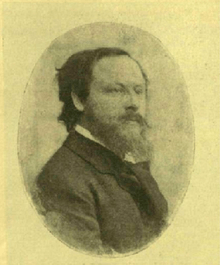József Róna

József Róna (1861 Lovasberény – 1939 Budapest) was a Hungarian sculptor and artist.
Biography
He was apprenticed to a joiner, then worked in the workshop of a sculptor. He went to Vienna on a scholarship in 1879 and spent three years in the school of Zumbusch from 1882. While in Berlin in 1885, his first large scale statue allowed him to go on a scholarship to Rome.[1] Cornered Faun was awarded with the Rökk Prize, Last Love with the Gold Prize in Antwerpen and the Grand Prix in Paris.
Róna's best known wood carving, Joseph and Putifarne, also won him the Gold Prize.
His statuettes of biblical and mythological subjects indicated a high level of artistic skill which was needed particularly in his more diminutive sculptures.
His major sculptural work was the Monument of Prince Eugene of Savoy in Buda Castle. The equestrian statue is standing on the Danube terrace, in a prominent position, high above Budapest. The Neo-Baroque statue was made for the town of Zenta but the town could not afford its price. The monument was bought in 1900 by the master-builder of the Royal Castle, Alajos Hauszmann as a temporary solution until the planned equestrian statue of King Franz Joseph will be completed. This never happened so Prince Eugen remained on his plinth.
Other works include the statues of Zrinyi in Budapest, Bertalan Szemere, Kossuth in Miskolc and Klapka in Komárom (today Komárno, Slovakia).
Róna was known to be a member of the Benczúr Society. Many of his works are exhibited in the Hungarian National Gallery at Buda Palace in Budapest.
Gallery of works
-

Monument to Prince Eugene of Savoy, in front of the Royal Castle of Budapest
-

Monument to Queen Elisabeth of Hungary in the park named after her honour in Gödöllő (1901)
-

Monument to Kossuth on Klauzál Square in Szeged
External links
- Képzõmûvészet Magyarországon - Fine Arts in Hungary at www.hung-art.hu